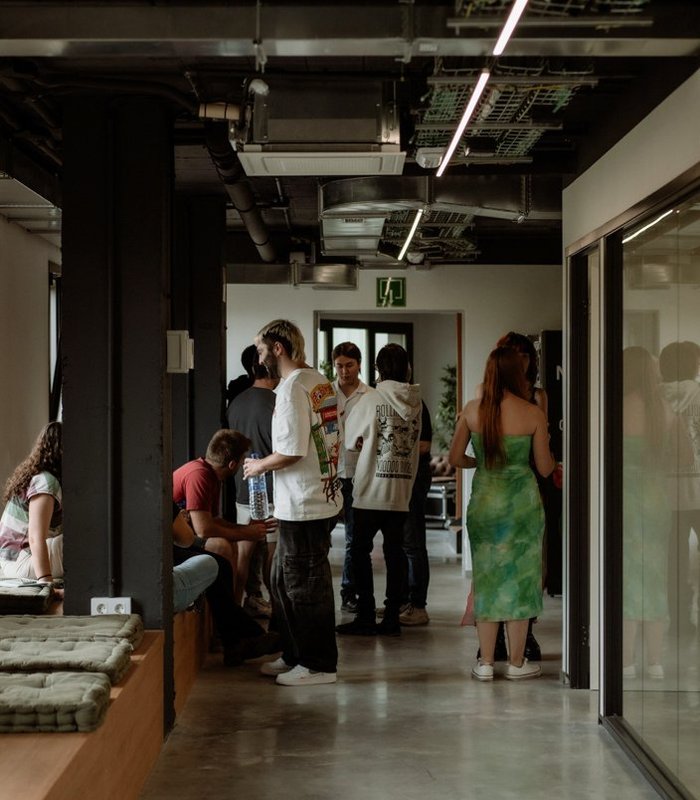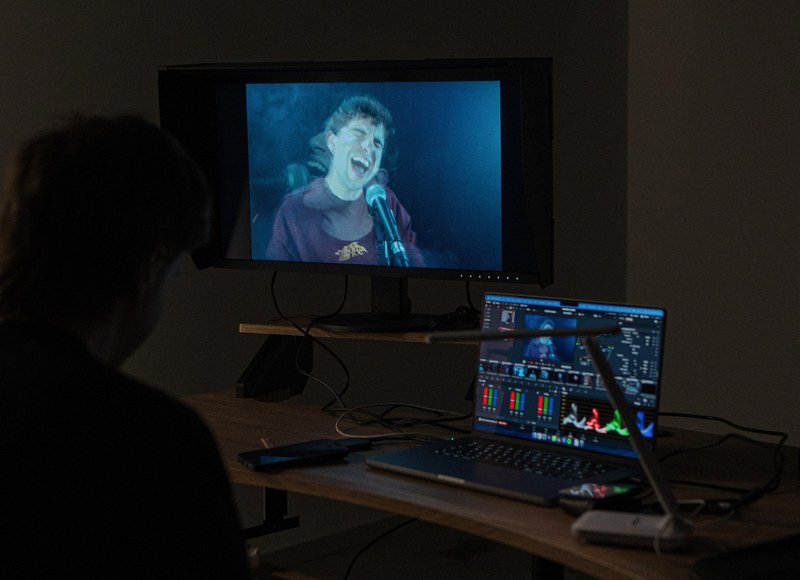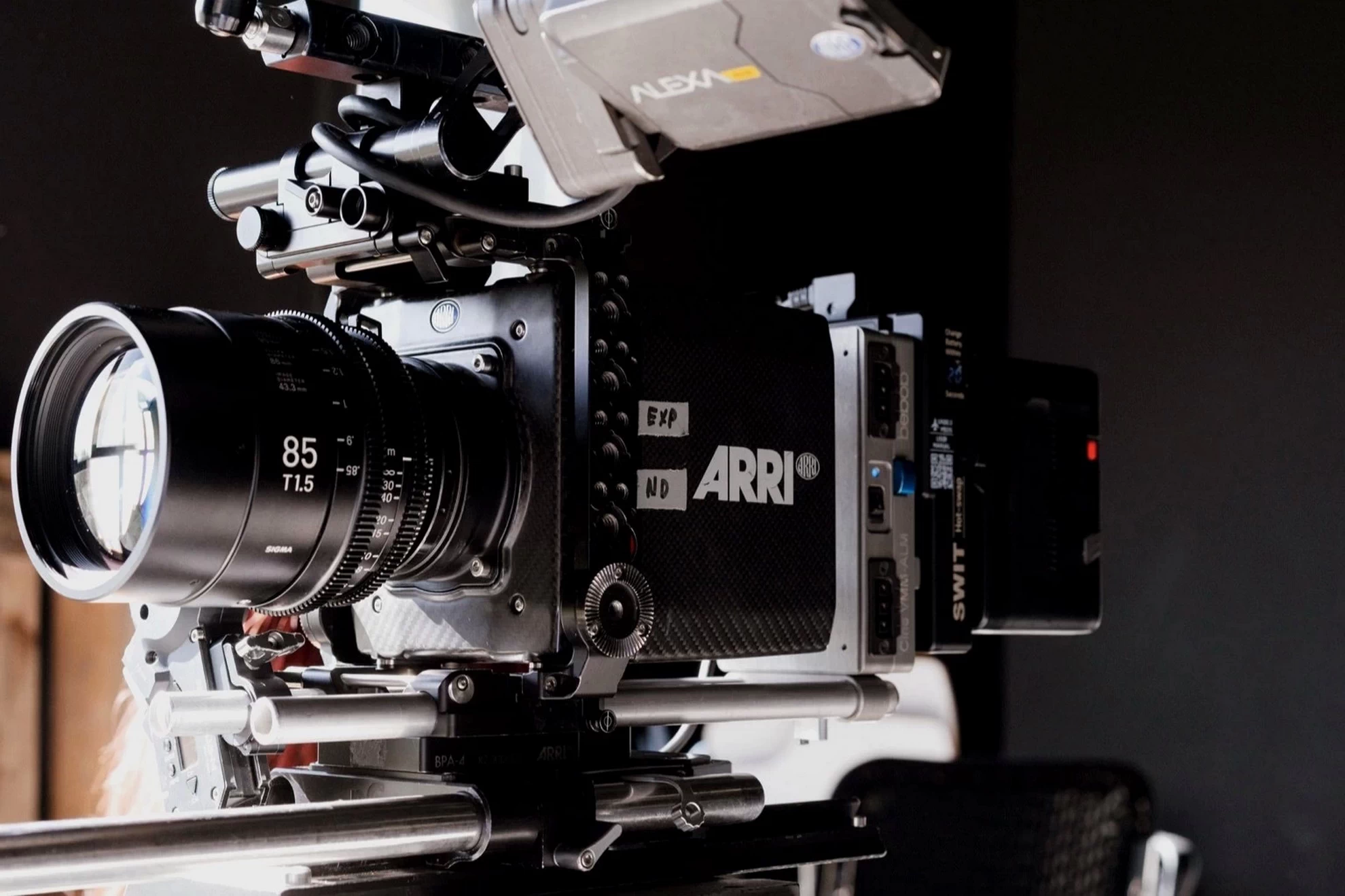

🎬 Frequently Asked Questions about Studying Film at ECPV
The Basque Country Film School (ECPV), located in Bilbao, has established itself as a national and international benchmark in film education. Our goal goes beyond the mere transmission of technical knowledge; we aim to offer an immersive educational experience that integrates historical, theoretical, and aesthetic aspects of cinema.
Rather than limiting ourselves to the traditional teaching of film professions, our pedagogical program provides a global and artistic vision of cinematography. We foster creativity, allowing students to develop a deep and unique understanding of the cinematic language and its evolution over time.
A Methodology That Sets Us Apart
The combination of an advanced educational approach and an up-to-date academic program places our students among the most outstanding at national and international levels. This rigorous training system not only equips them with essential tools to face the challenges of the labor market but also seeks to transform their perception and appreciation of the cinematic arts. We have a diverse teaching staff, made up of active professionals who demand the best from each student and offer thorough individualized monitoring, addressing both academic and artistic aspects.
In this section, we answer the most frequently asked questions from our students and visitors. Here you will find useful and detailed information to help you make the best decision about how and where to study film at ECPV. If you don’t find the answer you’re looking for, please don’t hesitate to contact us. We’re here to support you on your educational journey.
ECPV has established itself as one of the most renowned film schools in Spain, thanks to its comprehensive approach that combines technical and artistic training. Located in Bilbao, it offers a vibrant cultural environment and a direct connection to the audiovisual industry. Its faculty is made up of active professionals, ensuring up-to-date teaching that is closely aligned with the realities of the sector.
Unlike other institutions such as ECAM in Madrid or ESCAC in Barcelona, ECPV stands out for its practical approach from the very first year, allowing students to participate in real shoots and build a professional portfolio. Moreover, its location in Bilbao offers a strong and accessible alternative for those looking to study film in northern Spain.
But what truly sets us apart is that we don’t just train students for the industry as it exists — we conceive film education as a tool to imagine new languages, formats, and storytelling methods. Our teaching approach is built not only on what already exists, but also on what could be.
ECPV offers professional diplomas in various areas of film and audiovisual arts, including:
- Film Directing
- Cinematography
- Editing, Sound and Effects
- Acting for Film and Theatre
- Screenwriting and Dramaturgy
- Production for Film and Series
In addition, the school offers intensive workshops, specialization courses, and master’s programs for professionals.
Diplomas have a duration of 3 years, with over 1400 teaching hours. The program combines theoretical and practical training, including master classes, personalized tutorials, and participation in real projects from the first year.
The ECPV incorporates professional internships as an integral part of its programs. Students participate in shoots, collaborate with production companies, and have the opportunity to present their work at film festivals and screenings.
Thanks to its practical approach and industry contacts, ECPV graduates are prepared to work in various roles within the audiovisual sector. The school maintains ties with production companies, festivals, and distribution platforms, facilitating a gradual and realistic labor market integration.
No specific prior training in film is required. Motivation, creativity, and commitment are valued. It is recommended to have basic education equivalent to high school or a similar level.
For more information about the programs, registration dates, and requirements, you can visit our official website or go to the contact section where you can send us your questions through a form. We will be happy to guide you.
Training at ECPV is very demanding and designed for full dedication. Therefore, it is highly recommended that studies become the student's main priority. Although some flexibility in schedules may occur in specific cases, the intensity of the program and the practical nature of the classes make exclusivity key to fully benefiting from the educational experience.
Currently, ECPV does not have an active scholarship program. For any questions about financial conditions or future calls, we recommend contacting the academic secretary.
Depending on the specialty you study at ECPV, you will have access to a wide range of professional opportunities related to that discipline. Our graduates work as directors, screenwriters, editors, sound technicians, camera operators, production assistants, actors, among many other profiles in the audiovisual and performing arts sector.
ECPV provides students with high-level technical equipment, comparable to professional productions. We have cameras such as the ARRI Alexa Classic, Red Epic, Red Scarlet, KineMAX 6K, and several Blackmagic 6K Pro, as well as a wide range of professional lenses: Sigma Prime, Zeiss, Xeen, Canon, Rokinon, and others.
In lighting, our students work with Velvet 2x1 and 2x2 panels, SkyPanel S60 and S120, ARRI HMI 1200, ARRIM18, as well as Desisti, Castor, Felloni, Profiluz, Aladin Flexipane equipment, among many others.
The facilities include shooting stages, sound studios, editing and post-production rooms, all designed for students to experience real industry tools from the first year.
More information: ecpv.es/instalaciones
A professional diploma like those at ECPV is directly oriented to the labor market, with an intensive methodology based on practice, real project creation, and direct experience on shoots.
Unlike a university degree, our training is also developed from an artistic and authorial perspective, allowing the student to explore their creative voice and identity as a filmmaker.
Additionally, at the end of their studies, students must present a final research or creation project that integrates the entire training path and demonstrates their professional and artistic maturity before an academic jury.
We have a diverse student body in age, origin, and experience: from young people starting their first professional path to those wanting to reorient their careers toward film or audiovisual arts. But they all share something in common: the search for a creative spark, an authentic way to tell stories, to go beyond the conventional.
ECPV does not only train technicians; it inspires artists. Our student community is open, curious, collaborative, and deeply committed to creation. Here, you don’t just learn film: you live it, question it, and reinvent it.
Yes. At ECPV our doors are always open. In addition to the open house events we hold periodically, we also offer personalized one-to-one sessions where you can visit our facilities, meet the teaching staff, and receive individualized guidance according to your interests.
It’s an ideal opportunity to immerse yourself in the school’s creative atmosphere and resolve all your doubts in person.
Classes are mainly taught in Spanish. Some masterclasses or occasional sessions may be conducted in English or Basque, always with support and follow-up for all students. Additionally, although theoretical training is in Spanish, students may carry out their shooting internships in Basque if they wish, promoting creation in their own language and cultural roots.
The ECPV - Basque Country Film School is located in northern Spain, in Bilbao, the Vizcaya capital known worldwide for hosting one of the three Guggenheim museums.
The school is situated in the Miribilla neighborhood, a modern and growing area within the city center. Bilbao is experiencing a significant boom in audiovisual production.
The address is: Calle Mina San Luis 20, Miribilla Bilbao, Vizcaya.
Maps and directions here.
You will learn to develop your vision as a director, from the conception of an idea to the final production, working with screenwriters, actors, and technicians to build your own visual language.
The Film Directing diploma lasts three years, during which students progress from learning technical and narrative fundamentals to directing complex and professional projects.
The Film Directing diploma lasts three years, during which students progress from learning technical and narrative fundamentals to directing complex and professional projects.
You will learn to develop your vision as a director, from the conception of an idea to the final production, working with screenwriters, actors, and technicians to build your own visual language.
The Film Directing diploma lasts three years, during which students progress from learning technical and narrative fundamentals to directing complex and professional projects.
You will learn to develop your vision as a director, from the conception of an idea to the final production, working with screenwriters, actors, and technicians to build your own visual language.
The Film Directing diploma lasts three years, during which students progress from learning technical and narrative fundamentals to directing complex and professional projects.
You will learn to develop your vision as a director, from the conception of an idea to the final production, working with screenwriters, actors, and technicians to build your own visual language.
The Film Directing diploma lasts three years, during which students progress from learning technical and narrative fundamentals to directing complex and professional projects.
You will learn to develop your vision as a director, from the conception of an idea to the final production, working with screenwriters, actors, and technicians to build your own visual language.
The Film Directing diploma lasts three years, during which students progress from learning technical and narrative fundamentals to directing complex and professional projects.
You will learn to develop your vision as a director, from the conception of an idea to the final production, working with screenwriters, actors, and technicians to build your own visual language.
The Film Directing diploma lasts three years, during which students progress from learning technical and narrative fundamentals to directing complex and professional projects.
You will learn to develop your vision as a director, from the conception of an idea to the final production, working with screenwriters, actors, and technicians to build your own visual language.
The Film Directing diploma lasts three years, during which students progress from learning technical and narrative fundamentals to directing complex and professional projects.
The Film Directing diploma lasts three years, during which students progress from learning technical and narrative fundamentals to directing complex and professional projects.
You will learn to develop your vision as a director, from the conception of an idea to the final production, working with screenwriters, actors, and technicians to build your own visual language.
You will learn to develop your vision as a director, from the conception of an idea to the final production, working with screenwriters, actors, and technicians to build your own visual language.
The Film Directing diploma lasts three years, during which students progress from learning technical and narrative fundamentals to directing complex and professional projects.
